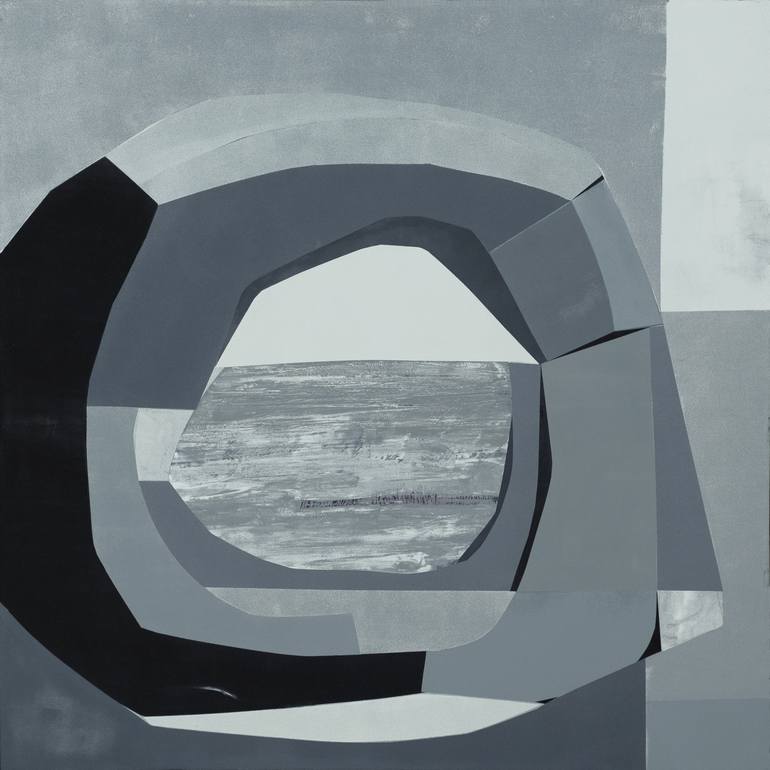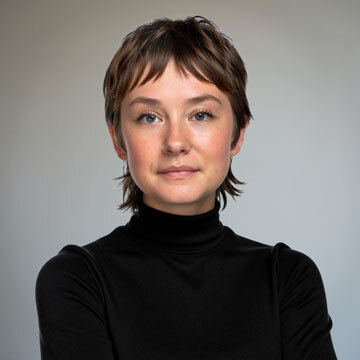


269 Views
20
View In My Room
Painting, Acrylic on Canvas
Size: 39.4 W x 39.4 H x 1.6 D in
Ships in a Crate
$2,965
Shipping included
FREE 14-Day Returns
Trustpilot Score
269 Views
20
Artist Recognition

Artist featured in a collection
ABOUT THE ARTWORK
DETAILS AND DIMENSIONS
SHIPPING AND RETURNS
This work belongs to the series "A rose is a rose.." A monochromatic dialogue between organic and geometric shapes.
Year Created:
2022
Subject:
Styles:
Mediums:
Painting, Acrylic on Canvas
Rarity:
One-of-a-kind Artwork
Size:
39.4 W x 39.4 H x 1.6 D in
Ready to Hang:
Yes
Frame:
Not Framed
Authenticity:
Certificate is Included
Packaging:
Ships in a Crate
Delivery Cost:
Shipping is included in price.
Delivery Time:
Typically 5-7 business days for domestic shipments, 10-14 business days for international shipments.
Returns:
Free returns within 14 days of delivery. Visit our help section for more information.
Handling:
Ships in a wooden crate for additional protection of heavy or oversized artworks. Artists are responsible for packaging and adhering to Saatchi Art’s packaging guidelines.
Ships From:
Mexico.
Customs:
Shipments from Mexico may experience delays due to country's regulations for exporting valuable artworks.
Need more information?
Need more information?
In her recent paintings, Eny Steinberg is carrying out a spatial research. She is looking for compartmentalization; organizing a two-dimensional space existing in a vacuum, into the expressions involved. She is assessing the territories we inhabit. Persistently she shows enormous deserts. We are used to saturation and to face the dilemma of space being slowly vanished in the cities. The urban paradox stems from the apparent space congestion. No wonder her work uses the city as a framework. The city has weighed and measured our sensibility and intellect. Our understanding of the contemporary city is directly linked to the way in which we go about and live. The periphery of the city and the never-ending hours we spend sitting in vehicles makes us grasp the enormous areas sectioned in lots lacking of human scale. Therefore, the acrylics on canvas by the Mexican painter show desolate extensions. Reduced to the incipient urban tracing. Highlighting the vacuum. Similar to the Zen Buddhist mu (void-nothingness), her proposal is to be empty and turn into basins where the world will flow and reverberate. Steinberg's plains/containers facilitate the observation of the plowing through the vacuum. Without any construction or paraphernalia. The feeling of vacuum is reinforced by the uncertainty we feel when facing the absence of orientation guidelines. The coordinates grid superimposed in her paintings do not give away any location. There are no reference points. No topographic data. No human scale or North. In order to build a humanized map and foster spatial awareness, we need to go across these territories and create new narratives. The second series presented consists of canvases which zoom- into a closer look at these lots. These events are tattooed in the canvas with the residue of colors over the grey lots. These close-ups turn the cities into buildings, a by-product of geometry. Here, the coordinates grids, visible in the first cartographies, disappear or loose their quadrature. Sketchy images of root systems and tree-shapes prevail. Traces of an esplanade rail suggest that those lots have not been totally inhabited. They encode every incident. They have memory. The third and last series is zooming -in again. Getting closer into the parameters introduced. Using serigraphy ink on Plexiglas black and grey branches are sketched intertwined, a counterpoint to the eroded lots in the first series of cartographies.
Artist Recognition

Artist featured by Saatchi Art in a collection
Why Saatchi Art?
Thousands of
5-Star Reviews
We deliver world-class customer service to all of our art buyers.
Global Selection of Original Art
Explore an unparalleled artwork selection from around the world.
Satisfaction Guaranteed
Our 14-day satisfaction guarantee allows you to buy with confidence.
Support Emerging Artists
We pay our artists more on every sale than other galleries.
